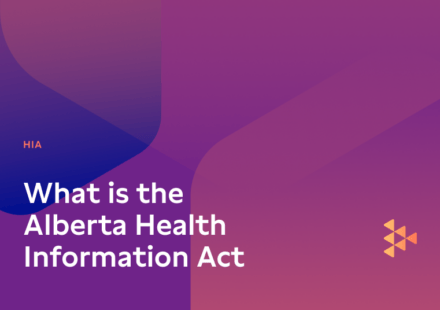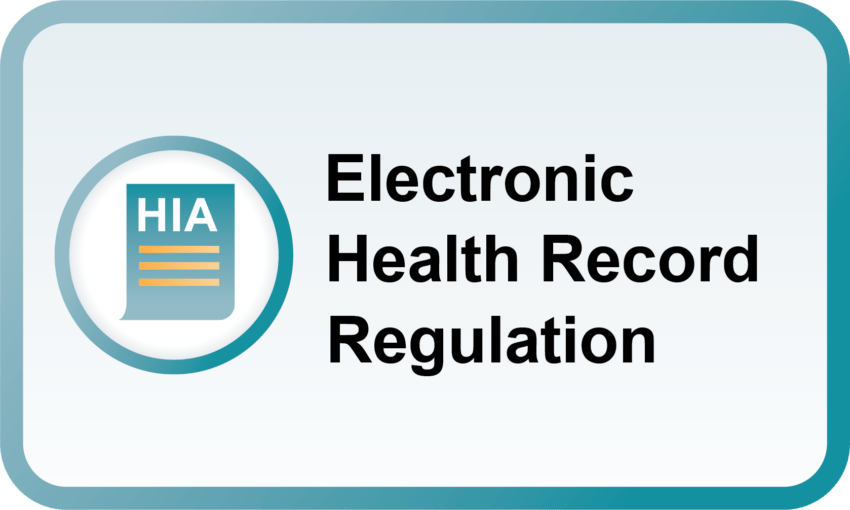Compliance with regulatory standards is non-negotiable when it comes to safeguarding your organization’s data and ensuring the privacy of your clients. With this context, let’s dive into the Alberta Health Information Act (HIA), a pivotal legislative framework governing health-related data in Alberta, Canada. Understanding HIA and its implications is essential for organizations entrusted with healthcare information and those dedicated to upholding data protection and compliance in the Canadian healthcare sector.
The Alberta Health Information Act (HIA) is Alberta’s as provincial legislative framework, outlining regulations governing the collection, utilization, disclosure, and safeguarding of health-related information. Its mission is to strike a delicate balance between upholding the privacy and confidentiality of individuals’ health data while ensuring that healthcare providers and organizations can access this information appropriately.
Who Needs to Comply With HIA?
HIA casts a wide regulatory net, encompassing healthcare providers, healthcare organizations, and other entities actively engaged in collecting, using, or disclosing health information. HIA categorizes these entities into two titles: custodians and affiliates.
HIA defines custodians as “an organization or individual in the health system who receives and uses health information and is responsible for ensuring that it is protected, used and disclosed appropriately” and includes Alberta Health Services, provincial health boards, and health service providers designated in the regulations.
Section 1.1.a defines affiliates as:
- an individual employed by a custodian
- a person who performs a service for the custodian as an appointee, volunteer or student or under a contract or agency relationship with the custodian
- a health services provider who is exercising the right to admit and treat patients at a hospital as defined in the Hospitals Act
- an information manager
- a person who is designated under the regulations to be an affiliate
The Ten Core Principles of the Alberta Health Information Act
HIA finds its foundation in ten fundamental principles that guide the acquisition and management of health information:
Consent: Individuals must provide informed and unequivocal consent before their health information can be collected, used, or disclosed, except under specific circumstances.
- Collection: Health information can only be gathered for explicit purposes closely linked to healthcare provision, with the collection limited to pertinent data.
- Use: Health information may only be employed for the specific intents for which it was initially collected, unless an individual provides consent or legal provisions allow otherwise.
- Disclosure: Health information may solely be disclosed to authorized entities or individuals for distinct purposes such as treatment or legal requisites.
- Access: Individuals possess the inherent right to access their personal health information and, if necessary, request necessary corrections.
- Safeguards: Organizations are mandated to institute robust security measures that shield health information from unauthorized access, disclosure, or breaches.
- Retention: Health information should be retained for a specified duration and subsequently disposed of securely.
- Accuracy: Organizations shoulder the responsibility of ensuring the accuracy of health information.
- Openness: Organizations are held to a standard of transparency regarding their privacy policies and practices.
- Individual Access: Individuals have the prerogative to ascertain who has accessed their health information and for what explicit purpose.
Who Enforces the Alberta Health Information Act?
The Office of the Information and Privacy Commissioner of Alberta (OIPC) takes on the pivotal role of overseeing the enforcement of the following Canadian privacy laws:
- Health Information Act (HIA)
- Personal Information Protection Act (PIPA)
- Freedom of Information and Protection of Privacy Act (FOIP)
Their responsibilities include but aren’t limited to:
- Addressing privacy complaints
- Monitoring, reviewing, and reporting on organizations’ compliance
- Evaluating Privacy Impact Assessments (PIAs)
- Reviewing privacy breach reports
- Educational outreach
They offer resources on responding to a privacy breach to educate healthcare providers, organizations, and their staff on best practices for data protection and privacy.
Furthermore, the OIPC regularly publishes reports and recommendations to promote transparency and accountability. These reports highlight areas of concern, suggest improvements, and offer valuable insights into emerging trends and challenges in the healthcare data protection landscape.
What Are the Penalties for Breaching HIA?
Penalties and fines for non-compliance can be issued for:
- Altering or concealing records
- Destroying records
- Improper handling of health information
- Unauthorized access
- Providing false information
- Non-compliance with orders
Fines under HIA were recently amended as of April 2021, and the ranges and maximums were increased to:
- $10,000 – $100,000, but not more than $200,000 for individuals
- $50,00- $500,000 but not more than $1,000,000 for any other persons
Part of the OIPC’s role is to ensure that organizations understand the consequences of non-compliance and take the necessary measures to protect privacy and safeguard healthcare information.
By actively monitoring and enforcing HIA compliance, the OIPC plays a crucial role in maintaining the integrity of the healthcare sector in Alberta. Their efforts support the overarching goal of balancing the need for access to health information with the imperative of protecting individuals’ privacy.
Custodians and affiliates under HIA must follow the ten principles. They need to put strong data protection measures in place and create reliable processes for safely and compliantly handling health information.
Navigating the Alberta Health Information Act (HIA) can be a daunting task, but here’s the good news – you don’t have to do this alone.
Meet Canadian Privacy Laws’ Requirements with Carbide
Carbide, with its streamlined compliance approach and a dedicated team of security experts, is here to help. Our platform is designed to reduce the time it takes to achieve compliance and take the stress out of ongoing maintenance with comprehensive tools. Allowing you to focus on what you do best – running your business. Talk with our team to learn how.


